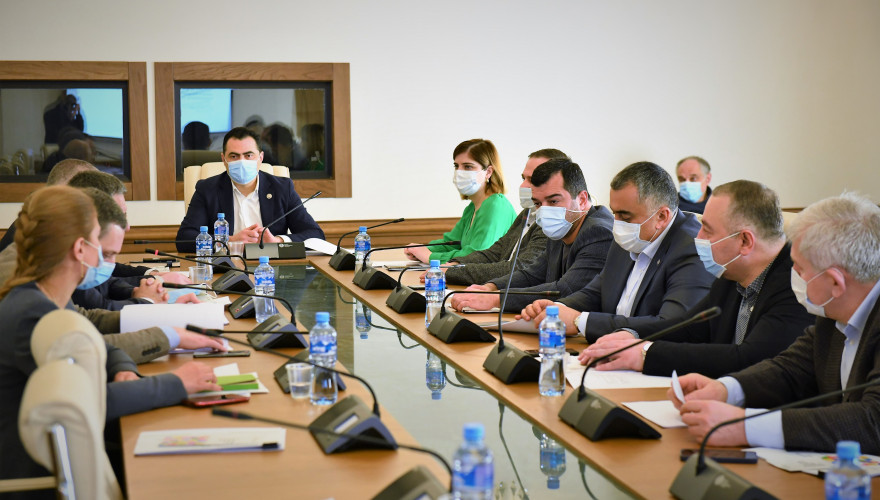The Agrarian Issues Committee heard the Reports by the Agencies under the Ministry of Environmental Protection and Natural Resources

The Committee at the sitting, presided by the First Deputy Chair, Alexander Motserelia heard the reports by the NPLE Rural Development Agency and LEPL Environmental Information and Education Center of the Ministry of Environmental Protection and Natural Resources for 2020, introduced by the Head of the RDA, Ilia Tamarashvili and the Director of EIEC, Tamar Aladashvili.
Prior to the presentations, the First Deputy Environmental Ministry, Giorgi Khanishvili informed MPs about the reports.
According to him, the RDA modification started in 2019 and was accomplished in 2020, initially it was the Agency working on the programs separately from the Cooperate Development Agency and regional, extension service.
“The set-up of the new institution allowed that the new Agency meets the EU requirements for the current stage and for 2024 when we intend to make an official application for the EU membership, and it is the final stage of transformation when the RDA shall be transferred into the payer agency”, - he stated.
Last year, the international organizations have studied the programs undertaken in Georgia, including “Produce in Georgia” and confirmed that our Agency and its programs meet the European experience, except that we possess scarce capacities, however, we keep the correct way. Speaking about the EIEC, he stated that the Ministry held training courses on agriculture and provided farmers with important information.
Reporting on the RDA activity, I. Tamarashvili stressed two directions – as the works undertaken in the system program direction of the Ministry, entailed by the pandemic. As noted, the pandemic also entailed the development of the projects to facilitate the farmers and simplify their access to the finances, as well as to provide uninterrupted agronomic works. Besides, within the Plant the Future program, more than 57 ml GEL was allocated as 2900 loans to plant the trees with co-financing of 4.2 ml GEL. In total, more than 57 000 GEL was allocated as the agro-credit to ensure the modernization of dairy production and access to the market.
The program lasted 7 years and 21 ml GEL was consumed.
The agro-production was undertaken within the anti-crisis program, the imported wheat was subsided. Besides, the decision was made on uninterrupted import of vital products etc. He overviewed the system projects, including “Plant the Future”, Agro-insurance, “Young Entrepreneur” etc.
After the reports, MPs expressed their positions.
According to them, every agency does its best to improve the welfare of the farmers and rural residents. There are issues, requiring higher attention, including wheat subsidies, local wheat development, Georgian tea-growing etc.
T. Aladashvili informed MPs about the objectives of the EIEC. According to her, facilitation of environmental and agrarian education and public awareness are the key directions of the Center, as well as the civic engagement in the decision-making process etc.
The agrarian component was added to the Center activity two years ago as the Ministries have been merged, and in 2020, the Center put an important accent in its activity on the facilitation of the farmers and training of extension service officers.
The Committee took note of the reports.
